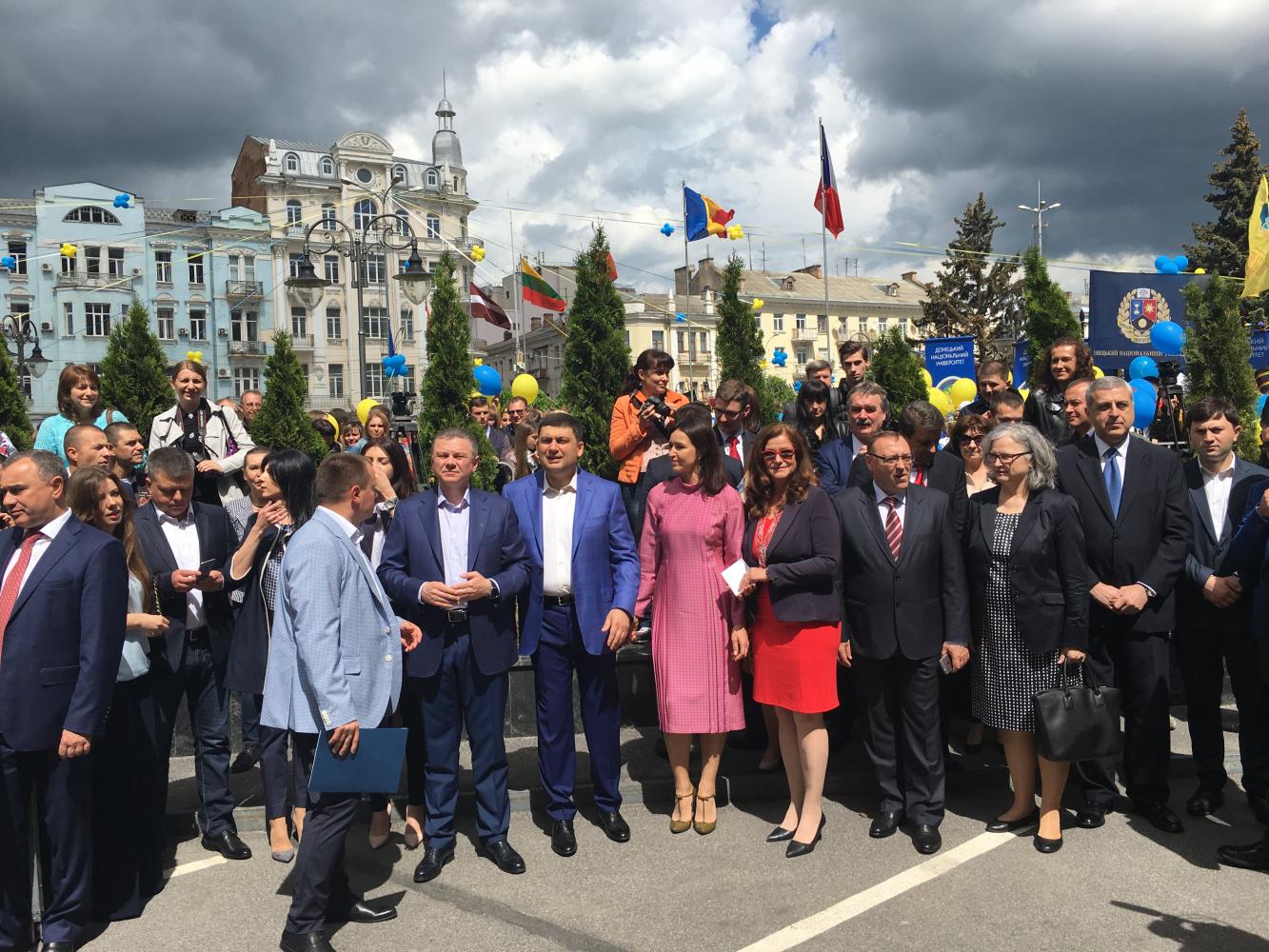
As I write this, Russian troops are moving north through the Odesa oblast, or region, toward the river Kodyma, along which sits a town called Balta.
This is not new territory for Balta, which like much of Ukraine has been contested over centuries of wars. But in recent years, Balta has actually broken a lot of new ground, at least when it comes to the practice of citizen-centred democracy.
In 2016, Balta adopted participatory budgeting, an innovative process --originated in Brazil -- in which citizens rather than officials determine their local budget. Balta also gave its young people their own governing council and a decision-making process to influence local policies.
Democracy, in its essence, is everyday people governing themselves. Such self-government happens most often at the local level, which is why countries tend to get more democratic when they decentralise.
Since the 2014 Maidan revolution, Ukraine has been among the more rapidly decentralising and democratising countries on Earth. This context is crucial to understanding what is now at stake in Eastern Europe. The war is being described as a conflict between Russia and Ukraine, between Russia and the West, or between Vladimir Putin and Volodymyr Zelensky. But it's really a clash between two of the most powerful trends in worldwide governance: increasing authoritarianism in nation-states and increasing democracy in our local communities.
In other words, Ukraine is now a battlefield where the international democratic recession meets the local democratic expansion.
Balta's advances in local democracy are representative of this shift toward greater local power and responsibility in 21st-century Ukraine. A generation ago, Ukraine was a post-Soviet state, with a centralised government conducting top-down rule of 24 oblasts, and nearly 500 rayons (territorial units of about 50,000 people). Localities -- including larger cities and nearly 12,000 hromadas, orlocal communities -- could hold elections, but their officials had little influence over local affairs.
In this century, and especially in the last eight years, Ukraine has devolved power to those local communities, more than 90% of which have fewer than 3,000 people. For many smaller hromadas, Ukraine authorised amalgamation -- mergers of small communities into larger municipal units, called "amalgamated territorial communities", which would have enough heft to provide services and lead economic development.
To incentivise these mergers -- towns made rich by gas or property taxes sometimes were resistant -- amalgamated communities were given a greater share of both national and local budgets, new power to impose local taxes, and greater responsibility for education, health care, transportation, social programmes, and agricultural land. To improve governance, these communities were authorised to experiment with democratic tools like participatory budgeting; in the past year, Ukraine has also advanced legislation permitting more popular referenda.
In a politically divided Ukraine, this devolution of local power had support across the spectrum, for a couple reasons. The first was positive, and driven by economics. Putting more money and power in localities was seen as the best bet for addressing poverty and inequality, and developing Ukraine in a balanced way that would make it a better fit with the rest of Europe, which has strong local governments.
The second reason, however, was defensive: the threat of separatism. In a country the size of Texas, greater local control was seen as the best way to placate localities and regions that might think of leaving -- especially Donetsk and Luhansk, two Russian-speaking Ukrainian oblasts where Russia would make incursions (and which Mr Putin would declare "independent" as a pretext for his new invasion).
Many of these newly empowered Ukrainian local governments have seized the opportunity, and not just for economic development. Municipalities have embraced political reforms -- adopting ethics codes, making their records and decision-making transparent, establishing citizen-directed processes like participatory budgeting, and adding new guarantees for representation and participation of women, men, and underrepresented groups in local politics.
Just this past December, two Ukrainian cities, Khmelnytskyi and Vinnytsia, finished first and third, respectively, in a global contest for innovation in government transparency. Mariupol, a city in the southeast under siege by the Russian military, has won international praise for its model of sharing governance power with local organisations.
These newly empowered cities have also been eager to collaborate with one another, especially in infrastructure, waste management, and extending internet services. Planning is increasingly long-term. Kamianske, a locality of 240,800 in the oblast Dnipropetrovsk, is using a citizen-led process to compose a municipal development strategy for 2027.
The commitment to building includes infrastructure for democracy itself. In the Poltava oblast, where localities are especially collaborative, the larger city of Kremenchuk was preparing to launch a school for participatory budgeting while a smaller town, Pyriatyn, established a city council ethics code and a club that allows students to debate decisions and participate in planning.
The true picture in Ukraine is complicated. And, despite all the human costs of this conflict, it's possible that the recent rise of local democracy may allow community collaborations to continue, even through difficult times. Perhaps the war, for all its dangers to life and liberty, might even open up new possibilities for more democracy and development. ©Zócalo Public Square
Joe Mathews is co-president of the Global Forum on Direct Democracy.







